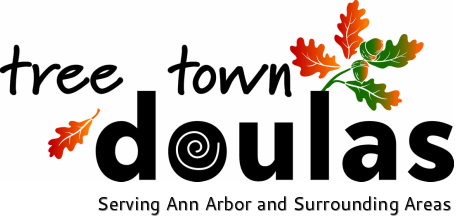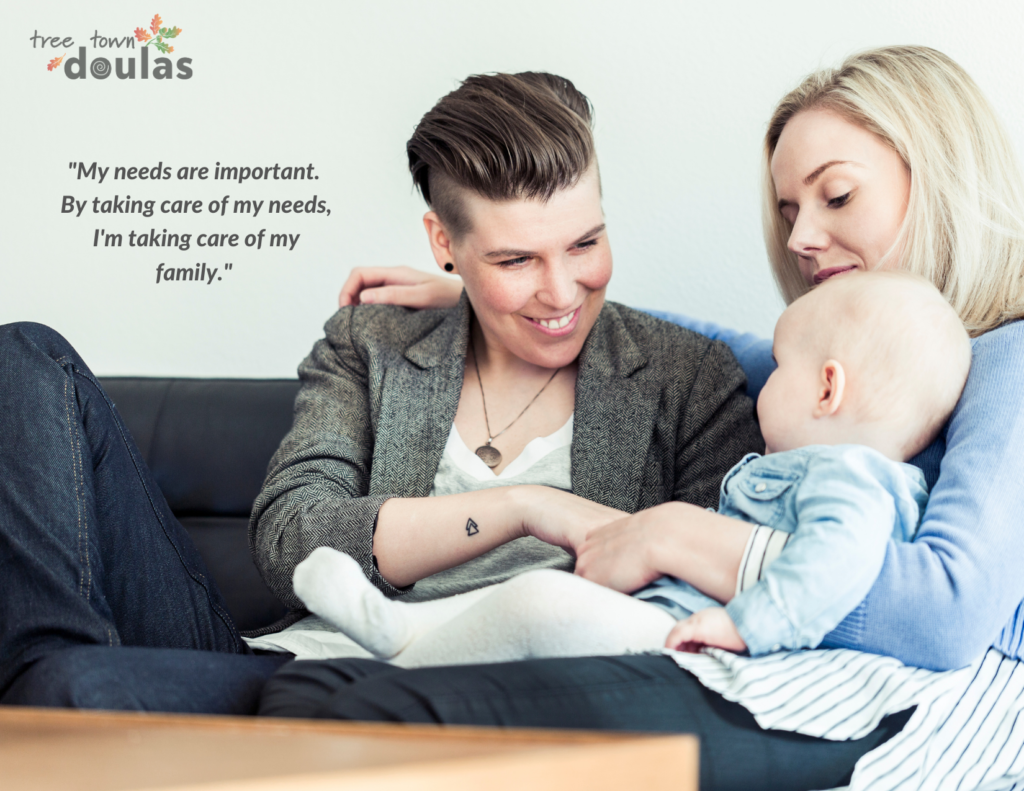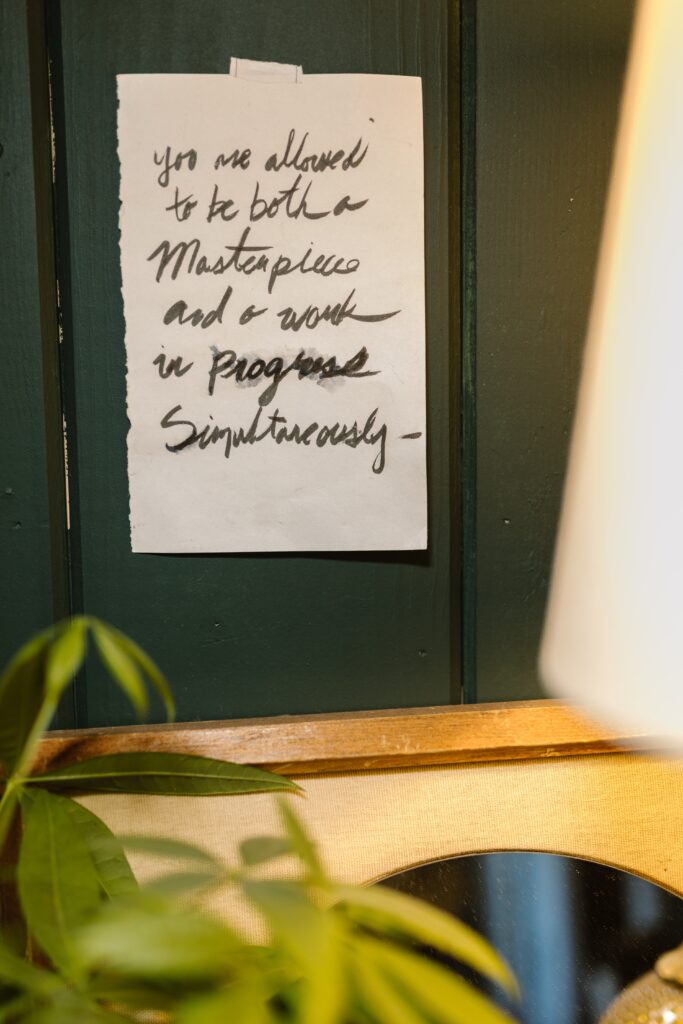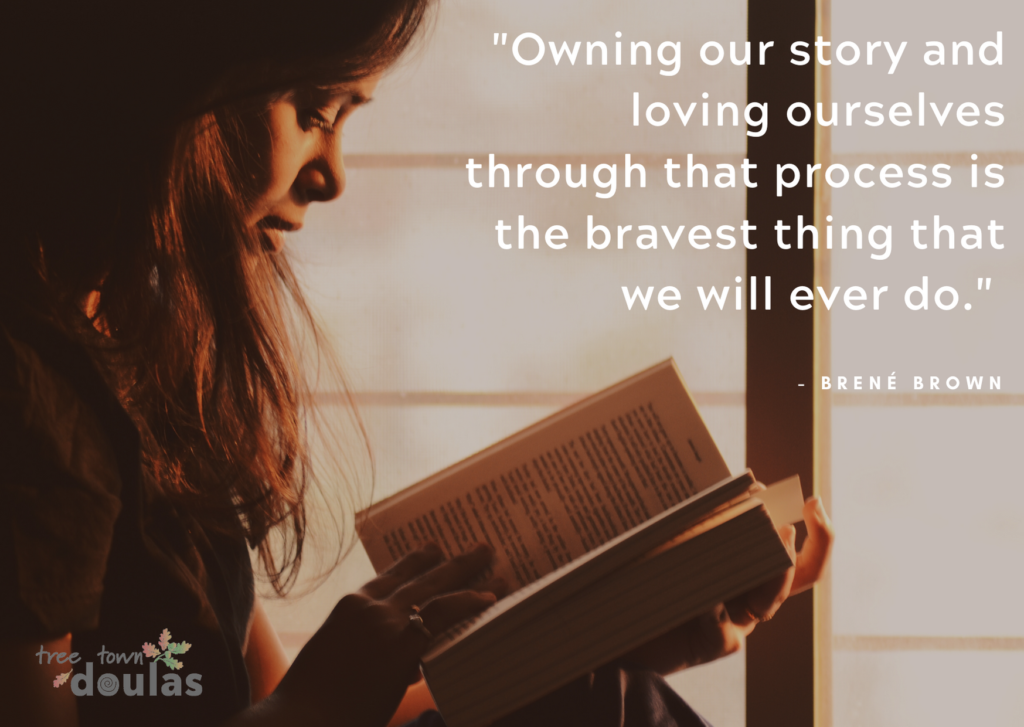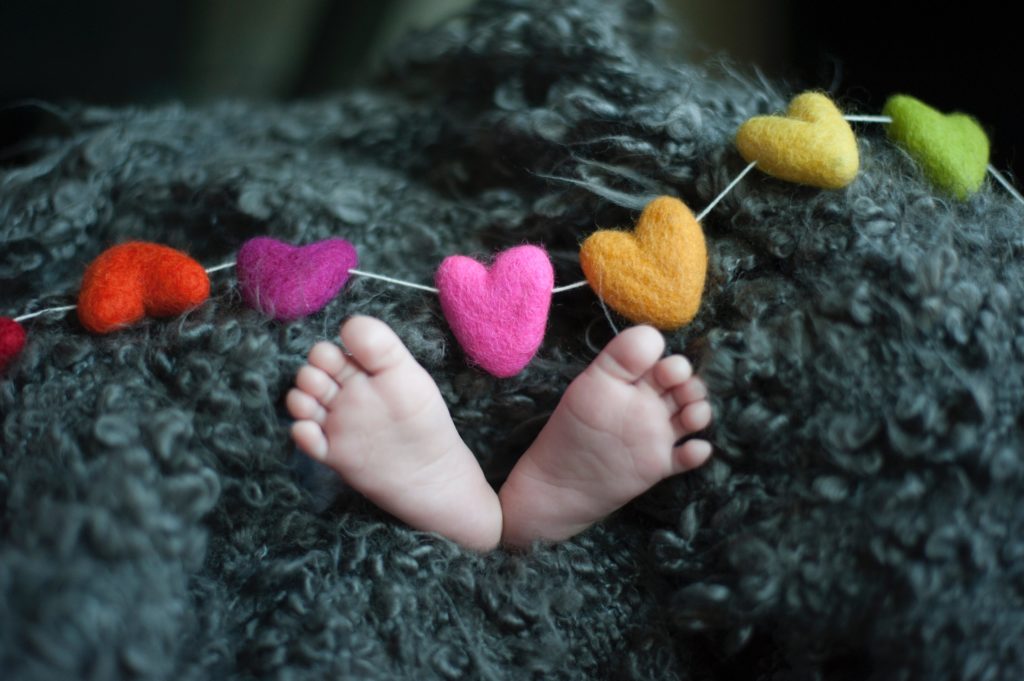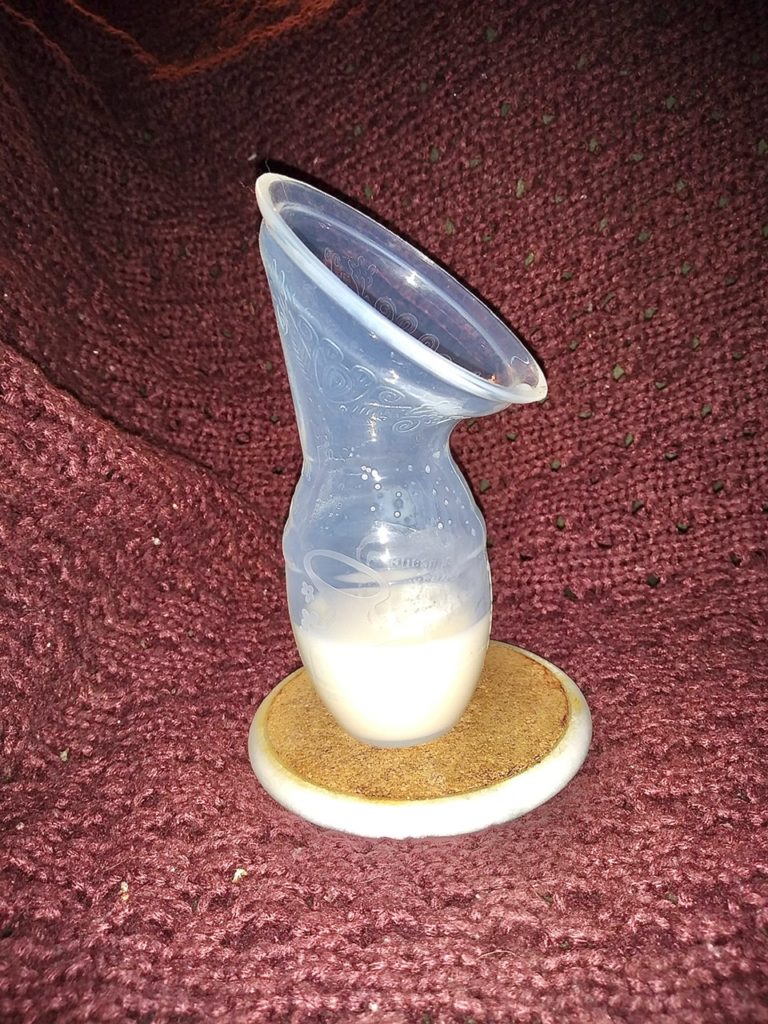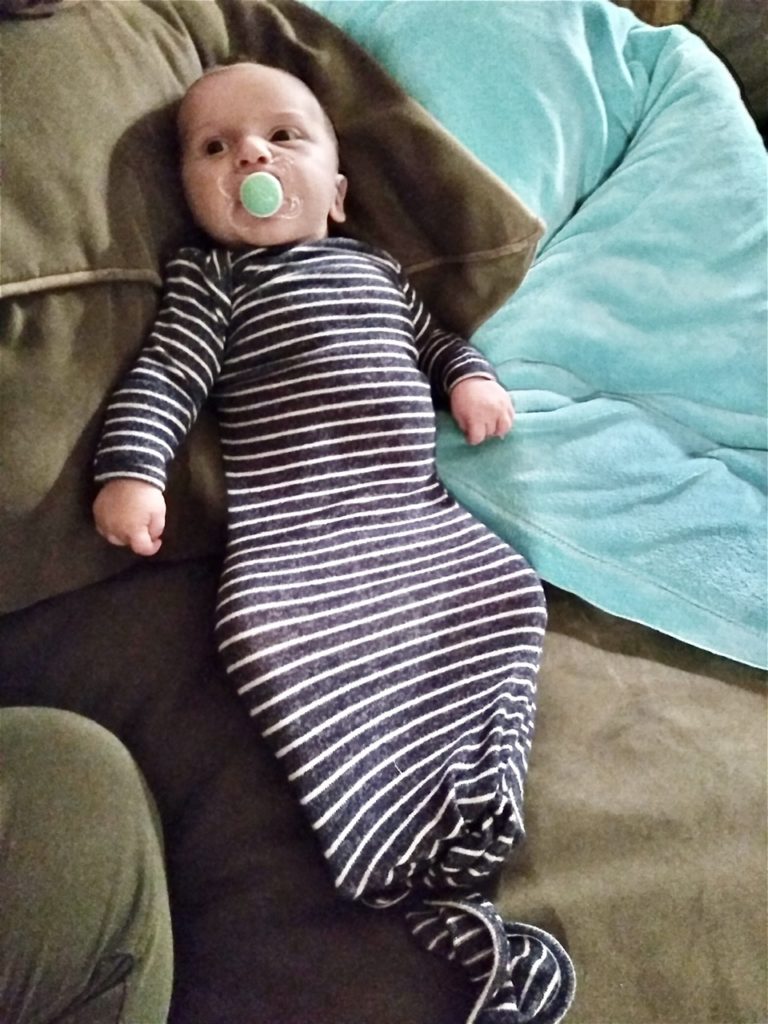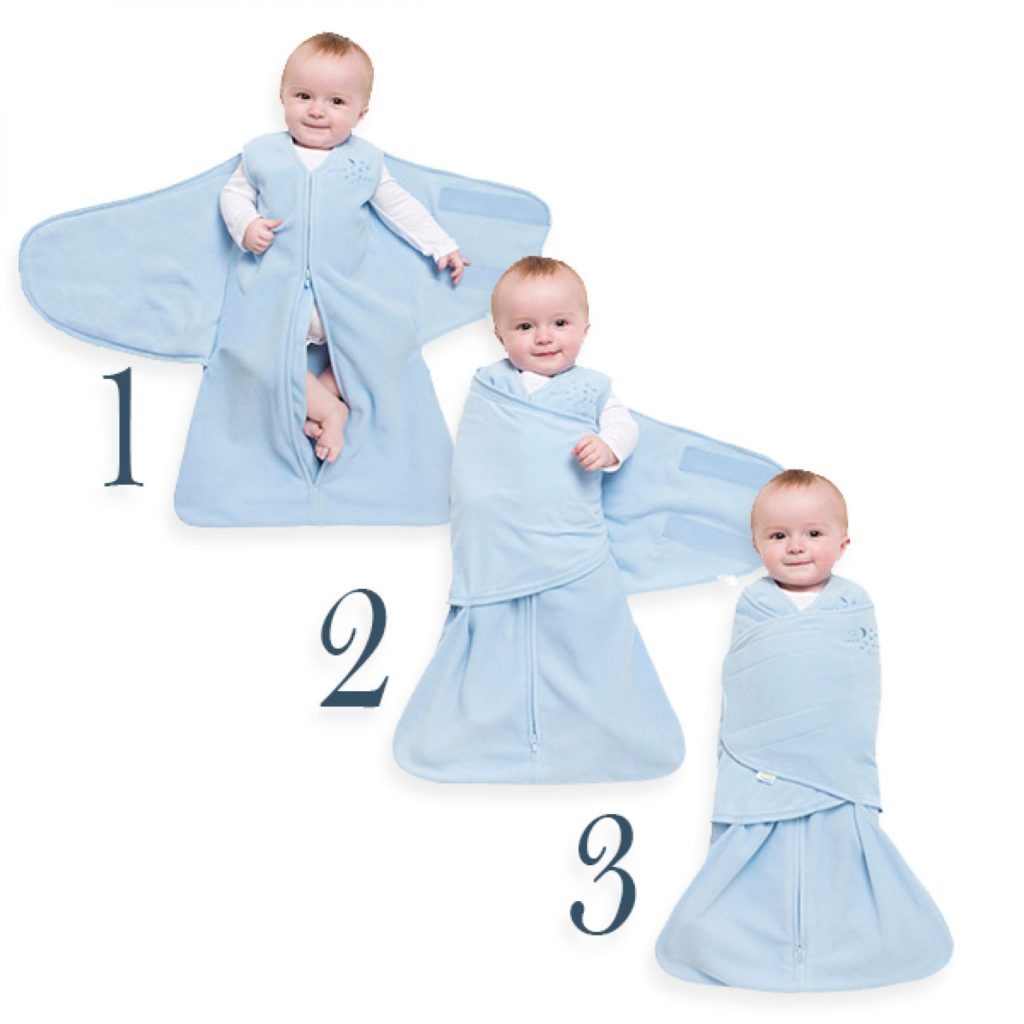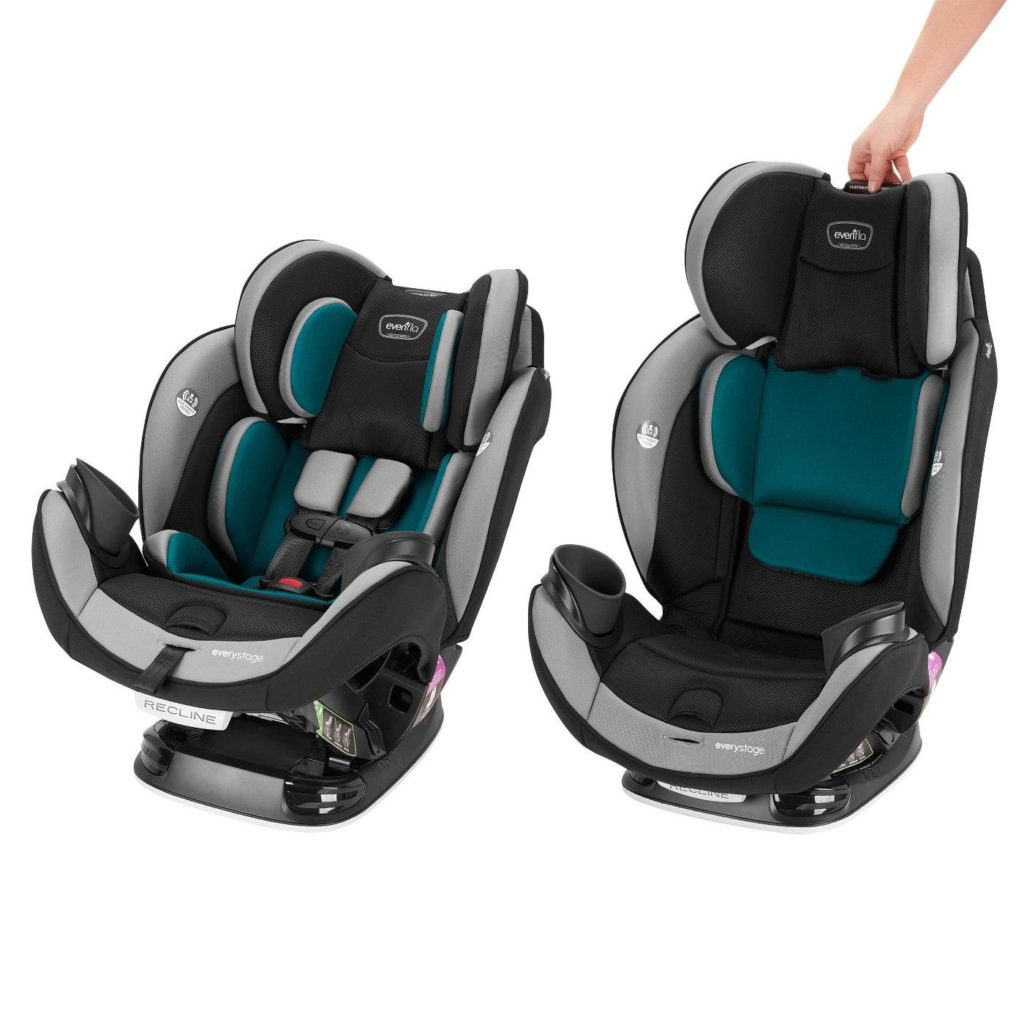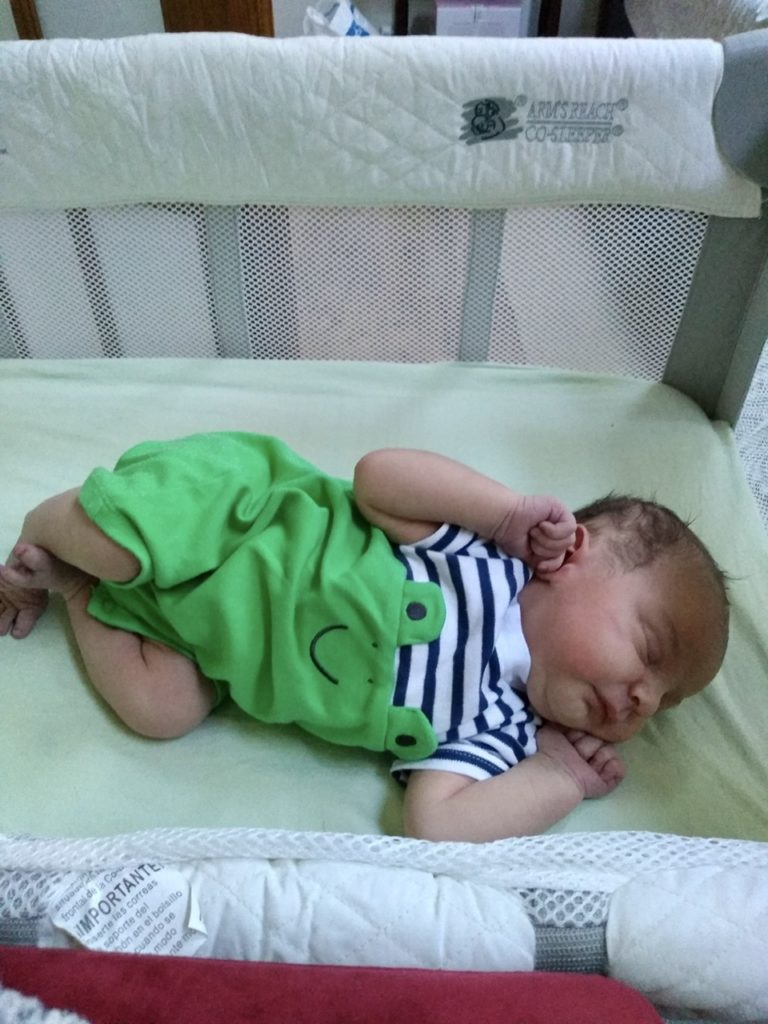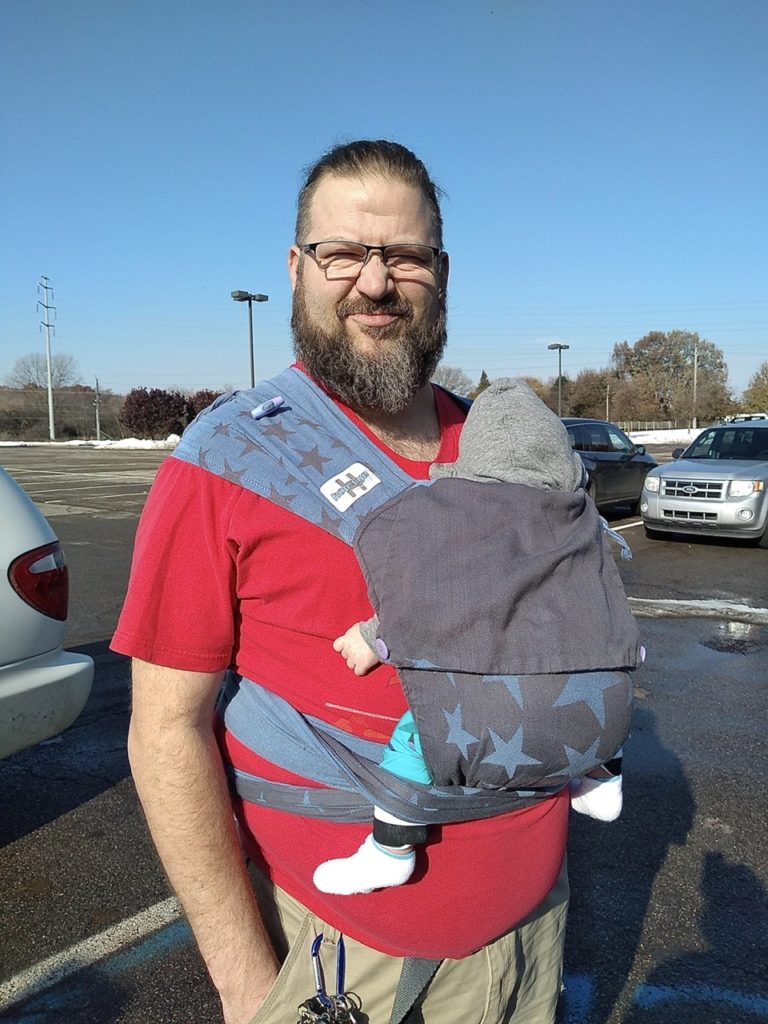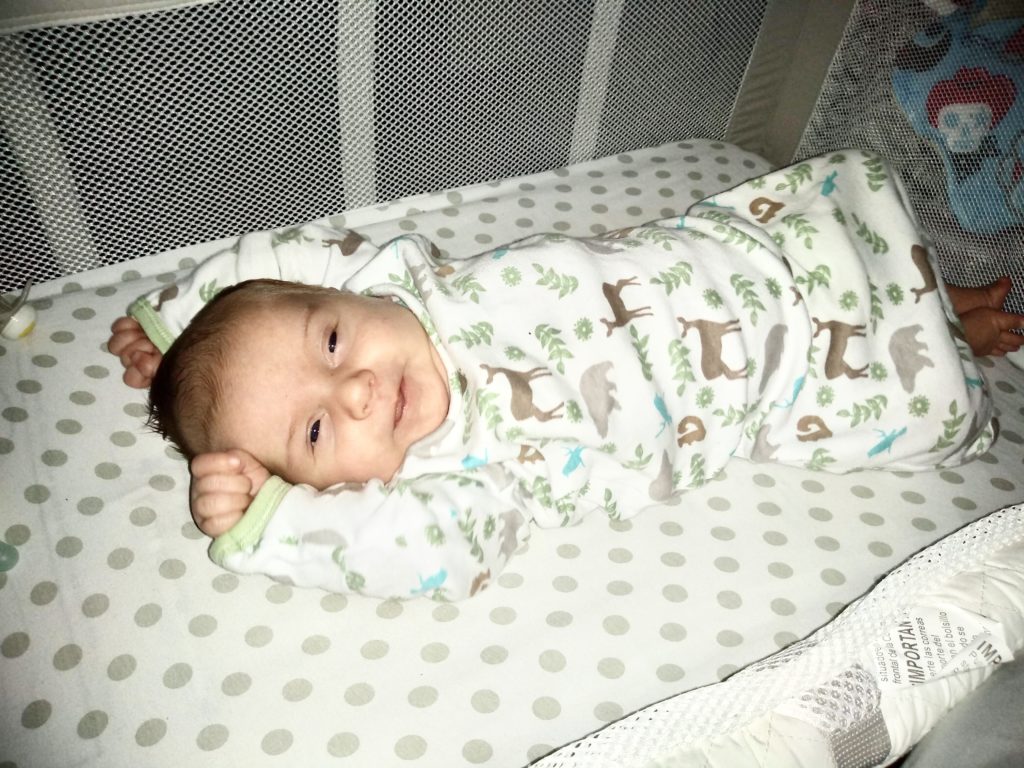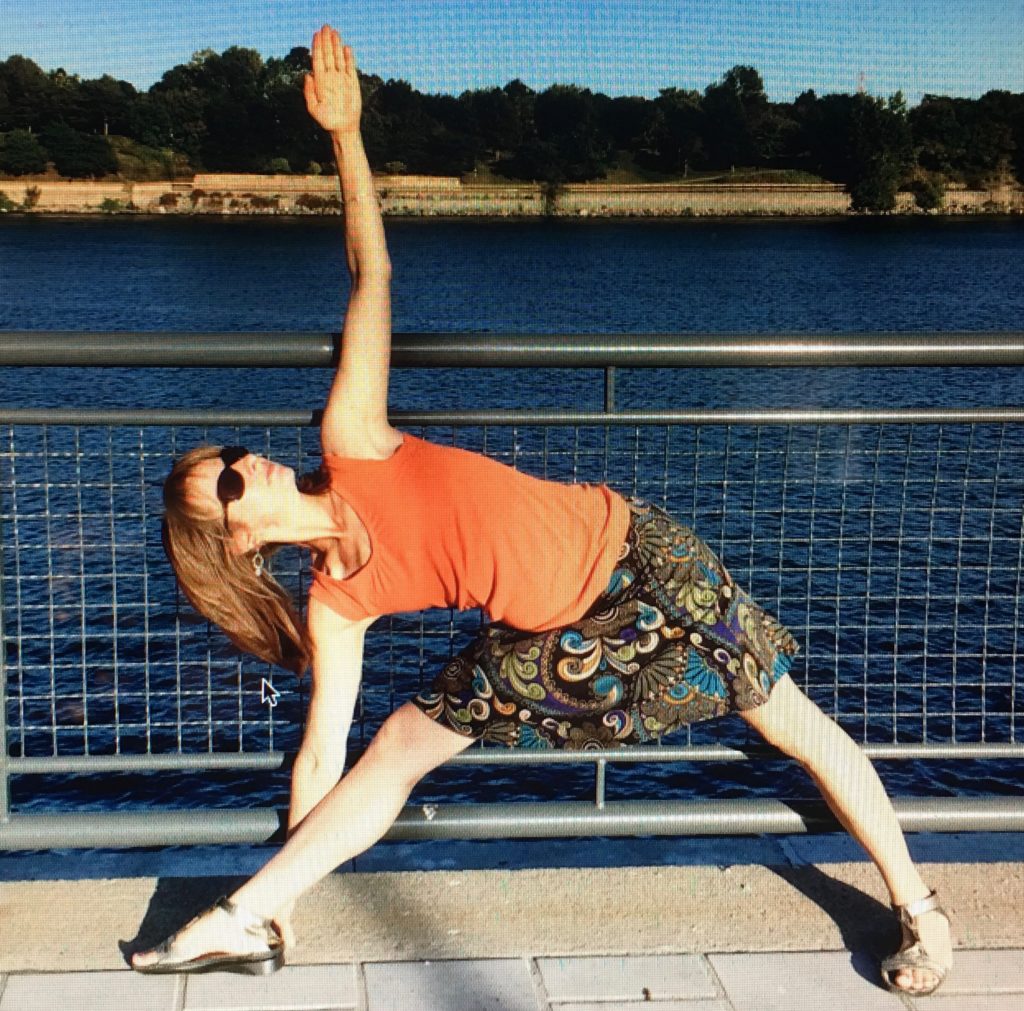parenting
TRAUMAVERSARIES AND THE COVID-19 PANDEMIC
by Anna Kreiner
For those of us in Michigan, the next few weeks will be filled with anniversaries. The first wave of the pandemic in Michigan started this time last year and ushered in a whole new slew of emotions, stressors and fears. I’ve seen a lot of people already posting on social media about their last normal day at work, or the last day their kiddos had in-person classes. On the flip side, many folks would rather ignore this one year mark. All of this is perfectly okay. Some folks are having very real trauma responses to these one-year anniversaries. Some aren’t. This is also okay. However you are feeling is okay. There is no playbook for a pandemic. And especially not a pandemic anniversary.
What is a traumaversary?
A crash-course in post-traumatic stress/brains that have experienced trauma:
This is where the COVID-19 pandemic anniversary can come in.
Triggers are one of many mechanisms our brain uses to keep us safe.
Since anniversaries of traumatic incidents are never easy, and everyone will experience this month differently, I have made a list of practical tips from personal experience that can help along the way.
Practical tips for making traumaversaries a little easier:
Bodyfeeding, breastfeeding, and chestfeeding looks different for everyone, and definitely isn’t limited to one particular gender. Some folks have chests, others have breasts, and some just prefer to refer to their body as a whole. Some feed exclusively using a pump, others exclusively feed their babies straight from the breast or chest. For some parents lactation needs to be induced, and for others it doesn’t. Some use combination feeding with formula, others use solely their own milk or donated breast/chest milk. There are SO many different variations of “normal” and Tree Town Doulas is supportive of all of them. Your journey with your baby will be unique and we are always here to answer any questions or help you navigate your options. We do, after all, have our very own CLC (Erica McLeod) and IBCLC (Tara Sullivan) on board!
Posted by Indigenous Women Rising on Tuesday, 18 August 2020
Posted by Our Grandmother’s Wisdom on Sunday, August 9, 2020
An important reminder in honor of World Body/Chest/Breast feeding month ❤️ You know yourself and your family. Parenthood can feel so overwhelming at times, but we promise that all of your decisions are valid and you’re doing an amazing job.
A FRIENDLY REMINDER
There’s nothing quite so powerful as a story. In particular, our own personal stories. The vulnerability we create by sharing and owning our stories (when we feel safe and comfortable enough to do so) holds so much power. That vulnerability opens up opportunities to learn alongside each other, but also to open minds, change opinions, and empower others. It gives us permission to feel, to dig into the deepest depths of ourselves, to question, grieve, play, laugh, empathize, and to explore. And in many cases, reveals to us the true beauty and complexity of what is within our reach in in every day life. With a single collection of words, our stories (and we ourselves) have the ability to fulfill one of our most basic human needs: the need to feel like we belong, and to know that we are not alone.
So here is your friendly reminder: You are not alone.
Regardless of where you are in your parenting/life journey, you are not alone. We’re in your corner. There comes a point in every journey where we need to lean on the wisdom of others, and if you’re there right now (and also if you’re not!), that’s totally okay. As doulas, we have our own stories, but we have also witnessed the many successes and struggles of other families too. And if there’s one thing we know for sure, it’s that parenting can be hard, and sometimes we all need a little extra TLC. That’s where we come in. Of course we love getting to meet your beautiful baby, but we’re also here to check on YOU. To help you get your needs met while you look after your little one. We know that if parents are nurtured and cared for, their babies will be too. We are professionally trained to support parents without judgement and in ways that make sense for their unique relationships with their babies. We don’t have an agenda for how we think you “should” parent because we know that parenting is already hard enough. We don’t expect you to be perfect or to know everything. We don’t judge, and we know that sometimes you’ll want to think of something other than parenting. Above all else, we embrace and honor whatever decisions you have made for you and your family. Instead of giving you directions, we walk with you. We’re just here to listen and to help.
WILL YOU BE MY VALENTINE? (AND CHANGE THE BABY’S DIAPER?)
It’s almost here, folks! Valentine’s Day: the hallmark holiday filled with cutout hearts, chocolates galore, witty candy hearts, and sexy underthings. A lot of people have a very specific idea of what Valentine’s Day “should” look like since it’s the stereotypical holiday of couples. But it’s no secret that becoming a parent changes everything. From relationships to your daily routine, fatigue level, hobbies (or sometimes lack thereof), alone time, sleep cycle, diet, finances, and all things in between. You just created a whole human being, and it’s hard work! Who has time to stop at Victoria’s Secret when your life is currently consumed by a crying baby, a mountain of dirty diapers, an endless sea of baby clutter, and a little one that feeds around the clock?
For all of you new parents out there looking to cherish or rekindle the romance while also keeping up with the new routine you have finally fallen into, have no fear!
These are our tips and tricks for having a stellar Valentine’s Day as a new parent:
Keep it Simple If You Need To.
Take the pressure off. If all you want to do for Valentine’s day is take a nap, THAT IS TOTALLY OKAY.
Self Love.
Whether you have a partner or not, give yourself the gift of self love this Valentine’s Day. You matter and you are important!! Take moments throughout the day to appreciate YOU and how far you’ve come. Not only did you make a tiny human, but you’ve also managed to take care of that tiny human! Congratulations!! Self love and self-appreciation often falls to the way-side for a lot of parents. So this Valentine’s Day, be intentional about acknowledging your needs, making peace with them, and reaching out to your support system to make sure those needs get met. No shame or guilt whatsoever. Self love is all about working towards a healthier you. You deserve to be healthy. Even just honing on one particular aspect of your life that you’ve been neglecting can do wonders for creating a sense of calm and self-appreciation.
Reinvent Romantic Dates.
It’s time to nix the notion that something only counts as “romantic” if it’s a giant gesture with dramatic swelling music, hundreds of roses, shouting from the rooftops, and a fancy restaurant dinner. Especially now that there’s a new baby around, it’s time to mix things up! Romance can absolutely still exist (and be within your budget!) as a new parent. Even amidst the dirty diapers and spit-up. It might just look a little different! A few ideas to try out:
- A chill movie night with your partner. Even if you only have time for an episode of your favorite TV show, that little bit of quality time with your partner can go a long way. And if you don’t have a significant other, a movie night with friends is just as effective for getting the good feelings flowing 🙂
- DIY restaurant date. This is a great one if you love the idea of a dinner date but don’t have the resources for a babysitter (or just aren’t ready to take that step yet!). Clean your eating space to set your mind at ease, light a bunch of candles strategically around the room to set the mood, and order some Take-Out to minimize preparation and clean-up. You now have your very own homemade restaurant date.
- A nap date. Not only will you both be catching up on the Z’s that you need and deserve, but you really can’t go wrong with some good old fashioned big spoon-little spoon cuddle time 🙂
- A nice cup of something. Whether you’re a tea drinker, coffee drinker, or neither (grab a cup of orange juice!), the time it takes to savor a beverage is plenty of time to just be in each others’ presence and appreciate one another.
It’s the Little Things.
Normalizing everyday romance is so important, and it can really be a godsend when it comes to bringing back some of those ooey-gooey coupley feelings. Small expressions of appreciation can sometimes mean even more than enormous gestures because they show special attention to your partner’s likes, dislikes, daily routines, and what puts them at ease. For example: cleaning the bedroom, doing a load of laundry, bringing your person tea in bed in the morning (or any other beverage/food they enjoy), a massage, or little valentine’s notes all over the house. All of these things let your partner know that you’re thinking about them, care about them, and are cherishing them through every day actions. Especially if your significant other is stressed and you have the ability to take care of something on their To-Do list. That’s one less thing they have to worry about and they’ll likely feel super grateful.
Gift Inspiration.
If you and your Honey are gift-givers, this section is for you! Keep in mind that not all gifts have to be material items, and they certainly don’t have to be expensive.
- The gift of time. A lot of hobbies and small (but important) forms of self-care often fall through the cracks when caring for a newborn. An amazing gift you can give your partner is the uninterrupted time to do something they love while you watch the baby for an hour or two.
- The gift of sleep. The same goes for this gift! Your partner will be eternally grateful when you surprise them with the chance to take a nap or sleep in without having to worry about a diaper change.
- The gift of relaxation. Few things can beat a massage or a relaxing homemade herb bath.
- A family photo. The early days of raising a baby often fly by faster than we expect. A family photo or photo album of the memories you’ve made with your little one is the perfect way to preserve those beautiful moments.
Sexy Time? Who knows.
If sex is just not on your radar right now (especially if you’re still recovering from a physically and/or emotionally traumatic birth) that is TOTALLY okay. Expressing love and affection in ways that you feel comfortable is all that matters!
But if you ARE feeling in the mood for a little sexy time (solo or otherwise), open up a conversation with your partner ahead of time so you can set time aside to get that need met. And honestly, if you’re in the mood, why wait until Valentine’s Day? You’ve been exhausted, stressed, and working hard to raise a beautiful new human since the second they were born into the world. Sexual needs are needs too, and you don’t need a Special Occasion as an excuse to get that Big-O. At the same time, it’s super common for parents to feel self-conscious about sex after having just launched a baby out of their bodies. A lot of new parents struggle to feel sexy when their attire consists mainly of nursing bras, maternity wear, and whatever bodily fluids their baby chooses to eject on them at the time. Plus, the “bounce back” culture of postpartum body standards has brought so much unnecessary anxiety to the lives of new parents. But we’re here to remind you that those expectations are pure garbage. Your body is perfect, sexy, beautiful, and powerful in all of its postpartum glory. It might take some time to get used to your body again (now that you’re its sole occupant), but please don’t let that stop you! Sex and intimacy of all forms can be wonderful for nurturing that spark with your partner and rediscovering what feels good for YOU. Not only will your stress fade away for that period of time in the bedroom, but it’ll also remind you both that you’re individual humans outside of being diaper-changers. So if your partner is game, go get ’em Mama 😉
Love on Each Other.
If your schedules are conspiring against you and there is absolutely no time for anything other than your normal routine this Valentine’s Day, you can still make the day special by loving on each other. Even if you’re just ships passing in the night. Whether your texting your boo how cute they looked this morning or complimenting them on how they handled the baby’s 2AM meltdown. Never underestimate the power of words, gratitude, and affirmation.
And when all else fails, you can’t go wrong with some classic hugs and kisses 🙂 XOXOXO
Happy Valentine’s Day everyone! 🙂
A FEW OF MY FAVORITE THINGS
By Toni Auker
If you have tried creating a baby registry lately, you have probably noticed that there are an overwhelming number of baby products.
So what do you actually need for your little one?
The truth is, that it is really hard to know what your little one will actually like before they are actually here. You might find that that swing, pacifier, or swaddle that you thought you needed is never used by your little one. You might find that the stroller that your friend raved about just doesn’t quite fit in the trunk of your car. What works for one family doesn’t necessarily work for others. With that in mind, I still wanted to put together a list of some of my favorite products.
These are the things that have made my life easier in the fourth trimester:
Haakaa silicone breast pump
The Haakaa is unlike any other pump I have ever used. First there is the price point. At under $20, this is something that I thought would be worth it even if I only used it for a couple weeks. I was under the impression that the Haakaa just caught the milk that would otherwise leak out of the other side while I was nursing. Although that is largely true, just squeezing it a bit more will create a suction that pulls more milk out. I started using the Haakaa when I was about a week postpartum. I was quite engorged, particularly on one side, and my little one was having trouble latching on. I suctioned the Haakaa to the engorged side and sat down to feed my little one on the other side. By the time he was done with that side I had 3 ounces in the Haakaa and he was able to latch on to the other side. I started using the Haakaa for the first couple feedings of the day and it didn’t take long before I realized that I was starting to have a nice stockpile in my freezer. I wouldn’t say that the Haakaa replaces the electric pump. I haven’t had any luck using it without my baby nursing on the opposite side. It wouldn’t do me any good if I had to pump at work and it certainly isn’t discreet. It is, however, a game changer for those of us that find ourselves leaking or engorged.
Aden and Anais knotted gown
There are a lot of opinions on what kind of baby pajamas are the best. The options are generally snaps, zippers, or gowns. I judge all of them on how easy it is to change diapers in the middle of the night. I love the ease of a gown, but I often find that my little one ends up with cold little feet. The knotted gown solves this issue. You literally just tie a knot in the bottom of the extra long gown and those cute little feet are kept warm inside the super soft pajamas. The only downside to this gown is that Aden and Anais only makes it in a 0-3 month size. I was very sad when my little guy outgrew it.
Halo Sleepsack Swaddle
Swaddling a baby can help to sooth them and makes it less likely that they will wake up due to their startle reflex. Although you can certainly swaddle a baby in a blanket, it makes me nervous to leave them unattended with blankets. My oldest was like Huidini and no matter how well we swaddled him he would always work his way out of it. With my second and third I discovered swaddlers that had snaps or velcro to keep them secure. I have several different brands, but the Halo is my favorite. Halo’s genius design includes a zipper that appears to be upside down. The benefit of that is that you can leave your little one swaddled while you change their diaper. They make these sleepsack swaddles in a few different fabrics so you can pick something warmer or lighter depending on your needs. I also have Halo Sleepsacks (without the attached swaddles) in several sizes. These are perfect for keeping little ones warm when they are still too young to have loose blankets
Reusable breast pads
If you are breastfeeding you will probably need to have some kind of breast pads. At 3 months postpartum I leak a lot less than I did at 3 weeks, but I still find that I need to wear the pads in my bra. I still leak a bit from my right side while breastfeeding my little one on my left. I also will occasionally leak if I hear him (or sometimes other babies) crying. Although there are disposable options, it seems silly when they are so easy to wash. I have bought them from Target, but I prefer to support small businesses. You can absolutely find great reusable pads on Etsy, but my favorite are from Goddess Homemaker, a Michigan woman that also happens to make absolutely adorable baby clothes. How many you will need will depend on how much you leak and how often you want to do laundry. I have six pairs and it works well for me.
Evenflo EveryStage DLX
I do a lot of research on car seats and I have found that most people have strong opinions about the best seats. With my first two I had one of those infant bucket seats that everyone seems to get. There are a lot of benefits to being able to quickly remove the car seat from your car, but it just isn’t something that I did that often. I do a lot of babywearing and my car seat stayed in the car 90% of the time. When I realized that most convertible seats can hold a newborn as small as 5 pounds, I decided to skip the newborn seat with baby number 3. So far the only time that I have found this inconvenient is at restaurants. I have become really good at either eating while holding a baby or laying him on a blanket in the booth. When he can sit in a high chair this won’t be an issue any more. The EveryStage DLX has been wonderful. It quickly adjusts the height, so that in 3 seconds I can make it fit my friend’s three year old. The DLX is so easy to install that I am confident that my 8 year old could get a secure fit. I am hoping that I will be able to keep my son rear facing in this seat for at least a couple years in this seat. There are so many car seat options out there. I highly recommend finding a local store with knowledgeable staff that can help you work through the options that fit your car and your family best.
Arms Reach Co-sleeper Mini
This is the best bassinet that we have found for our family. Two things about the design work very well for us. First of all, it securely attaches to the bed. This means that no matter how much I lean on it or trip getting out of bed. I will never tip this bed over. Secondly, the side of it can be lowered so that you can easily reach over and grab your hungry baby to feed him/her at night. This is a huge improvement from a traditional bassinet which I found awkward to reach into in the middle of the night. I suspect that the regular size co-sleeper would allow your little one to remain in it a bit longer, but the smaller footprint of the mini size co-sleeper works well for us. At 3 months old, my little guy is still doing well in the mini, but we will probably have to move him to his crib within the next month.
Wrap-strap Meh Dai
It is no secret that I am a babywearer. My babies have been worn in just about every carrier out there. In the first 3 months of this little one’s life he has been in a woven wrap, a Moby, a Wrapsody Hybrid, a couple different ring slings, and a HopTye (a meh dai made by the German wrap manufacturer Hoppediz). The HopTye is by far my husband’s carrier of choice. It is soft, flexible, and there are no straps that need to be adjusted. It is also extremely comfortable. I can wear my little guy in this carrier for hours without it affecting my back at all. No matter how you choose to wear your baby, it allows you to meet their needs while also having your hands free to take care of your own needs. For me this means that I can grocery shop, play with my older sons, and feed myself while my little guy naps on my chest. The other big advantage of this carrier style is that this carrier that is working so well in these early days will also work on my back when he gets older and should be able to comfortably support him when he is a toddler. I got a great deal on this carrier on the second hand market, but they aren’t the only manufacturer of this style. Two others that I like a lot are Fidella and Didymos. I have a lot of experience and opinions about baby carriers. If you want help finding the right carrier for your family, consider setting up a babywearing consultation in your home or visiting a local babywearing group.
I hope that my list of my seven favorite baby products is helpful for you. Although some of the things I have came from reading a ton of reviews and asking a lot of questions, the majority has just been trial and error. Some things that I painstakingly bought (like our stroller) we have never really used. Other things, like the Co-Sleeper, were gifts we didn’t think we needed that have now become staples in our lives. You will find the things that work best for you.
Just remember that the only things your baby absolutely needs are love, warmth, and milk. Everything else is just to make your life a little easier.
NEW YEAR’S WISHES
We’re in the home stretch everybody! We have less than 48 hours of 2019 left and we’re heading full speed into the new decade. 🎉🎉
Around this time of year you’ll see tons of social media posts and overhear ample conversations about New Year’s Resolutions. These resolutions are awesome for a lot of people, but for others it can add more pressure to the already pressure-filled job of being a parent. Life and parenting are unpredictable (and quite frankly, exhausting) so it’s easy to fall into a cycle of self criticism if we end up not being able to achieve these New Year’s Resolutions. So this year we’re taking the stress off.
This year, we have a list of New Year’s Wishes for all of you wonderful parents out there. ✨
In the coming year, we wish you a year filled with:
- Moments of heart-warming joy. We hope there are moments where you laugh until you can’t breathe, your heart soars with happiness, and where you make memories too beautiful to put into words.
- Good health for you and your family. May the bad germs/viruses stay away, and may your physical, emotional, and mental health thrive this year!
- An empowering birth experience. For those of you expecting babies in the year 2020, we wish you a smooth pregnancy and an amazing birth experience. May you be reminded of your own strength and badass-ery! And if things don’t go as planned (which they often don’t), we wish you the strength and adaptability to conquer all of the twists and turns that labor brings. We’re here for you and we know you can do this. 💕
- Healing. Whether that’s physically from birth, a past injury, or emotionally from the things that ail you and hold you back. We hope that in 2020 you’re able to nourish and nurture your mind/body, take care of yourself in all of the ways that you deserve, and find peace.
- Being patient with yourself. Parenting is a lot. You are learning and growing. Please be patient with yourself (much like your doulas would be patient with you, or you would be patient with your kiddos) as you go through this journey at your own pace. You’re doing great, we promise!
- Loving on your body. Because you deserve it. Your body goes through a lot during pregnancy, birth, and the postpartum period. Even if you’re not technically “postpartum” anymore, our bodies are put through A LOT just in every day life. There’s a lot of pressure to look a certain way, and to “bounce back” as quickly as possible after birth. This is your friendly reminder that your body is perfect exactly as it is. You are whole and beautiful exactly as you are.
- Emotional and physical safety. And with this wish for safety, we hope that you always possess the freedom to be completely and authentically yourself.
- Reasonable expectations. Because there’s nothing like perfectionism to put a damper on accomplishments big and small. We hope that 2020 is a year of ditching any impossible/harmful expectations you set for yourself, and letting go of comparing yourself to others (especially other parents). Your journey is unlike anyone else’s! Parent however feels right to you.
- Confidence in your own abilities. And with this confidence, we hope you always carry the knowledge that you can handle anything that comes your way.
- Insurmountable strength and resilience. Whether it’s a minor setback, a slump, or an all-out battle. Sometimes all you can do is hunker down and keep going. If you’re in a low place, we hope the duration is short and that you’re able to find stability and peace soon. For anyone fighting through trauma, mental illness, self doubt, abuse recovery, oppression, isolation, incarceration, and all things in between: we see you, we’re with you, and we care about you.
- A sense of community, representation, and inclusivity. You are beautifully unique, and your experiences matter. We can’t wish you enough of these three. You deserve to see yourself in others, to find mentors, support, acceptance, and respect wherever you go. Regardless of your socioeconomic status, race, sexual orientation, gender identity, religious beliefs, or ability status, just know that you’ll always have safety and affirmation waiting here for you at Tree Town Doulas.
- Recognition and appreciation for your accomplishments. Because you’re amazing, and you deserve to be told that.
- Financial stability. Along with enough food on the table, clothes that fit, the medical/mental health care you need, the education for you little ones that our future deserves, and the ability to treat yourself every once in a while.
- Drinking lots of water!! We had to include this one. It’s so important!
- Balance. Is achieving true balance even possible as a parent? We’ll let you know when we find out. But it’s definitely something to work towards. As parents we tend to spread ourselves too thin and put ourselves on the back-burner. It’s okay to say “no” and to take time for yourself. You can’t pour from an empty cup, and for that reason self-care is absolutely vital to parenting. By taking care of yourself, you’ll be able to give more to your little ones and everything/everyone else that you care about.
- Not sweating the small stuff. Parenting is stressful enough as it is! Knowing when to cut yourself some slack so that you can save your energy for the big stuff is an incredibly underrated form of self care.
- A rock-solid support system and so much love that you don’t know what to do with it all. Support is everything. And above all else everyone deserves love. Whether it be platonic, familial, altruistic, or romantic love. We wish you bountiful hugs whenever you need them, and we hope most of all that you always know that you’re never alone.
- Learning, growing, and thriving. Because you deserve more than just to live. You deserve to thrive.
In 2020, we wish you all of these things and so much more.
Thank you to each and every one of you for making 2019 such an incredible year for Tree Town Doulas. As for our journey to come, we look forward to another year of beautiful babies and parents! 🙂
HOLIDAY SURVIVAL GUIDE FOR NEW PARENTS
The Holiday Season is now officially in full swing! As we speak, the kiddos are gearing up for their favorite holiday festivities while parents rush around from store to store preparing for the perfect celebration. The holidays are a stressful time as it is, but it’s even more stressful with a new baby or a bun in the oven. Whether you’re fresh out of the hospital, in your second trimester, or months into raising your little one, this blog post is for you! Tree Town Doulas has put together a few tips and tricks for surviving the holidays as a new parent.
1. Give yourself permission to keep it simple
You may need to let some things go this year. And that’s okay! This one may be hard for those of you who are used to big, beautiful, extravagant holiday celebrations. Parenting in itself is a full time job. When you add a newborn or morning sickness into the mix, parenting becomes two full time jobs. As a new/ pregnant parent your priority right now is taking care of yourself and your baby. Take that extra time to rest and skip out on hosting festivities this year if you need to. There will be other holidays, we promise!
2. Establish your rules/boundaries ahead of time
If you plan on attending family festivities this year, it’s likely that the grand majority will want to hold your baby or touch your baby bump. There’s nothing wrong with enjoying either of these things if you’re comfortable with them! But figuring out your boundaries ahead of time can save you a lot of stress in the moment. Whether you’re completely fine with everyone holding your baby (gives you more time to grab a snack before pumping!) or whether you need your partner to act as a body guard against the bump-touchers and baby-holders. All of these options and everything in between are a-okay as long as you’re feeling comfortable and low stress. You call the shots when it comes to your body and baby, and you never need to feel guilty about that! A couple things to consider:
- Babywearing – keeps your baby close and calm in overstimulating environments. Plus, if you’re someone who doesn’t want everyone holding your baby, this provides you with a ready-made excuse to keep your little one with you!
- Washing hands – Another boundary to consider is whether or not you want people to wash their hands before holding your baby.
- Short and sweet – Would your stress level decrease if you appearance at festivities was brief this year? This can be a great compromise if you want to see your family members, but don’t have the energy to stay for a full-day celebration. Be sure to listen to your body and listen to your baby. 🙂
3. It’s okay to say “No”!
We can’t say this one enough: It’s okay to say “no” to holiday invitations! If your heart sighs with relief at the idea of spending the holidays curled up on the couch at home, there is NOTHING wrong with that. Give yourself permission to decline invitations. You have a great excuse for avoiding the stress of the holidays. Being pregnant and taking care of a baby is exhausting, so everyone will understand. If they don’t- no worries! There will be other holidays. There is only one you. Plus, they won’t be able to stay mad for long when they see your beautiful new baby 🙂
4. Stay Cozy
Those first few weeks postpartum can be a doozy for any parent. So regardless of the time of year, we always recommend that new parents stay comfy and cozy. Between the sleepless nights and finding a rhythm with your baby, the little things you do to take care of yourself will become extra important during this time. So put on those fuzzy socks, and wear your comfiest hoodie.You deserve it.
5. Plan your baby’s feeding schedule
This is a surefire way to prevent the dreaded Holiday Meltdowns of 2019. Take a moment to write out your baby’s usual feeding times, when they’re more likely to get fussy, and when/if you’ll need to pump. Keep a copy of this schedule with you, on your phone, or with your partner. If you’re someone who loses track of time easily (most parents start measuring times in terms of “how many times my baby has eaten today” so you’re not alone), set alarms to the times you know your baby will be getting ready to feed. The more you can plan ahead and anticipate when your little one will need that extra attention, the smoother things will go.
6. Prioritize
This is along the same lines as giving yourself permission to keep things simple. Write out a list of things that are important to you during your holiday celebrations. Circle your top 3 and leave it at that. A few examples: decorations, visiting family, gratitude, religious practices (if applicable), food, family traditions. On that list, include a friendly reminder that pre-made food (or even take-out) is a perfectly good food option if you don’t have the time/energy to cook 🙂 For the rest, focus as much as you can on self care, the rhythm you’ve established with your little one, and sleep. For those of you recovering from a cesarean section, this will be especially important!
7. Accept help
This tip goes for parenting in general! Accepting help can be really hard at first, especially if you’re used to being entirely independent. But raising a baby takes a village. A lot of family members and friends will want to help, but don’t know how, so don’t be afraid to delegate! Let your needs be known and allow your friends and family give you a break. You’re recovering from birthing a human, you’ll need a break every once in a while 🙂
8. Online Shopping is your best friend
Anyone who has ever chest/breastfed won’t be surprised at all that producing milk consumes 25% of your body’s energy. In comparison, your brain uses 20%. This explains why you’re so tired all the time! Already, just by producing milk and existing with your brain, that’s almost 50% of your body’s energy already being consumed. After expending so much energy simply by existing, shopping for holiday gifts may feel like an absolutely impossible task. Thank god for the internet. Sit down on that sofa, and order all of those gifts from the comfort of your own home. And when in doubt: Gift Cards 🙂 Take the pressure off where you can. And if you don’t have the energy for gift-giving this year, there is nothing wrong with that either! Which brings us to our last tip:
9. Cut yourself some slack
Things aren’t going to be perfect. Healing from birth can hit parents harder than they expect, whether your birth plan went exactly or not at all as planned. If you had a cesarean section you’ll be recovering from a major surgery on top of all this. So here’s your friendly reminder: recovering and settling into a rhythm are your number one priorities right now. Be kind and gentle with yourself. Give yourself the gift of peace. It’s okay if you don’t have the energy to host festivities this year. It’s okay to give gifts late, or not at all for that matter! It’s okay to take a break and to take care of yourself. You matter. And you can do this. You’re ALREADY doing it.
We wish you a holiday season filled with love, laughter, joy, and most importantly: SLEEP! 🙂
COMMUNITY SPOTLIGHT: PRENATAL AND POSTPARTUM YOGA
Happy Thursday everyone!!! 🙂 This week’s Community Spotlight is highlighting the wonderful Marlene McGrath!! Not only is she an amazing mother, but she’s also an incredible prenatal and postpartum yoga instructor. We HIGHLY recommend checking out her classes. Plus, she’s located right here in Ann Arbor!
MARLENE MCGRATH
To find balance in her job as a hospital social worker, Marlene began studying and practicing yoga in 1991. Now, Marlene is the mother of 3 teenagers, and teaches yoga full-time to students ages 18-99 with a specialty in prenatal and postnatal yoga. You can find her full class listing at: yogafocusannarbor.com !
What brought you to support moms and babies?
I was a yoga teacher before having children, but during my first pregnancy realized how much yoga helped me stay connected to my changing body and cope with labor, birth, and recovery. I then decided to pursue more training to specialize in teaching yoga to pregnant and postpartum women.
If there was one myth you could “bust,” what would it be?
The myth: that pregnant women just need to deal with significant discomfort and pain during pregnancy, that it is just part of being pregnant.
What do you enjoy doing when not working?
Working in my garden, walking my dog, having outdoor adventures with my children, family, and friends.
What moment are you most proud of?
I am most proud of the moments when I see my children negotiate difficult experiences.
Tell us about something in your practice you would like everyone to know.
My hope is that women who practice yoga during their childbearing years develop a knowledge of and relationship with themselves that will serve them through parenting and all the transitions to come later in life.
